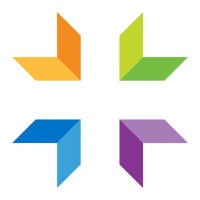Position Details
- Employment Type - Contract
- Employment Location - Remote, Hybrid, or Onsite
At Velan Studios, we foster a culture of curiosity. Our games embrace diversity and are fueled by the adventurous spirit of our team. We are the creative minds behind titles like Mario Kart Live: Home Circuit, Knockout City, and Hot Wheels Rift Rally; as well as the upcoming releases Midnight Murder Club and Bounce Arcade! Our studio's mission is to pioneer groundbreaking gaming experiences and reimagine play in new ways. We're committed to pushing the boundaries of traditional gaming, blurring the lines between reality and fantasy, and revolutionizing the industry one game at a time.
Responsibilities:
- Lighting Design: Collaborate with the Art Director, level designers, tech art team, and environment artists to create lighting designs that enhance the overall visual style and narrative of the game and help guide the player to their objectives.
- Lighting Setup: Implement lighting setups for real-time game environments and cinematics using industry-standard and custom tools, engines, and shaders. This includes both static and dynamic lighting setups.
- Real-time & Baked Lighting: Create and fine-tune real-time lighting setups using dynamic lighting systems. This involves adjusting light properties, shadows, reflections, and global illumination to achieve desired visual effects and optimize performance. Reach into your bag of tricks to juggle the balance between real-time and baked lighting to ensure the project hits performance and aesthetic targets.
- Creative Problem Solving: Game development is full of hacks and tricks. Propose solutions and collaborate with tech art and engineering teams on creative ways to get the look while maintaining the framerate.
- Autonomy: Self-motivated and the ability to work and solve problems with minimal assistance
- Post-Processing Effects: Apply post-processing effects like color grading, bloom, lens flares, and atmospheric effects to enhance the overall visual impact and mood of the game. Create new art for post-processing effects when needed (ex. lens flare variations)
- Matte Painting: When needed, update existing matte paintings or create new ones for sky domes, backgrounds, etc.
- Collaboration: Work closely with other artists, designers, and technical teams to ensure the lighting integrates seamlessly with other game elements. Provide and receive constructive feedback to achieve the desired visual quality. Troubleshoot materials for PBR (Physically Based Rendering) compliance.
- Optimization: Optimize lighting performance to maintain target frame rates across different platforms and hardware specifications. Implement lighting techniques that balance visual quality with performance requirements.
- Documentation: Create and maintain lighting documentation, including guidelines, best practices, and technical specifications for the lighting pipeline. This ensures consistency and facilitates knowledge sharing within the team.
- Portfolio: A strong portfolio showcasing your lighting work in video game projects. The portfolio should demonstrate your understanding of lighting principles, composition, and mood.
- Technical Skills: Proficiency in industry-standard lighting tools and software (e.g., Unreal Engine, Unity, etc.). Knowledge of real-time lighting techniques, Physical Lighting Values and PBR shader authoring, and experience with optimizing for multiple target platforms is essential.
- Artistic Eye: Strong understanding of color theory, composition, and visual storytelling. Ability to interpret concept art and translate it into compelling lighting setups, and the ability to create compelling compositions when no concept art exists.
- Collaboration: Excellent communication and teamwork skills. Ability to work closely with other artists, designers, and engineers to achieve the desired visual quality and meet project deadlines.
- Adaptability: Flexibility to adapt to changing project requirements, art styles, and technical constraints. Willingness to learn new tools and techniques to improve your skills.
- Problem-solving: Strong problem-solving skills with the ability to troubleshoot lighting issues and find efficient solutions. Attention to detail and ability to iterate on lighting setups based on feedback.
- Passion for Games: Genuine passion for video games and a deep understanding of how lighting impacts gameplay, mood, and player experience.
Qualifications
- Previous Experience: Prior experience as a lighting artist in the gaming industry or related fields is required.
- Technical Knowledge: Previous work with custom game engines, visual scripting, and experience with shader development would be advantageous.
- Education: A degree or diploma in fine arts, digital art, computer graphics, or a related field is a plus but not mandatory.



















